Our Collective Son, Aylan
A horrific image of a drowned boy came up on my news feed a few weeks ago when the shock value of these images thrust them into the global spotlight. The boy was three–on first glance, he could be my youngest son–and his name was Aylan.
He wasn’t shot, famine-starved, or limbless (we’ve seen enough of those pictures to become numb to them). Aylan was simply lifeless, his boat having capsized as it navigated rough Mediterranean waters–one of the many segments of his refugee family’s journey toward hope. His mother and brother–age five, just a year younger than my oldest son–also drowned, leaving his grieving father behind, so full of regret.
Aylan’s limp form is now the embodiment of the greatest refugee crisis since World War II.
Understanding the Syrian Refugee Crisis
But what is the Syrian Refugee Crisis? We’ve all heard of ISIS, the Arab Spring, and war in Syria, but for most of us average folk, it is rather complicated to understand and very distant. I’ve had a hard time following the current events in Syria over the past four years, even though I’ve touched on the crisis in a few blog posts (Why I am Thankful I Am Not in Syria, Five Peaceful Actions on the International Day of Peace and Revolution: The Hunger Games).
Recently, I’ve felt a heavy weight to make it personal.
Despite our lack of understanding and/or interest, the truth is that we must become engaged–the Syrians need us to engage, just like the Jews in Nazi Germany needed uncompromising people to respond, rather than look away. Syria might be a different type of crisis–it isn’t just a vile genocide–but it is still a gargantuan issue. If we want to be marked as loving towards others, we cannot be apathetic towards Syria.
What is Happening in Syria?
As I know this is hard to grasp, and takes time to figure out. That is why I wrote this post, hopefully helping us step into the shoes of a Syrian by putting it on our turf. It turns out that what is happening in Syria isn’t really that hard to imagine happening in the United States.
Syria was actually a pretty decent place to live until recently, despite its political and cultural injustices. But with war-torn Iraq on one side, and the Arab Spring ushering protests throughout the Middle East in 2011, Syria didn’t stand untouched.
That is the context that we step into. Now, Imagine with me that Syria is actually the United States.
If Syria Was the USA
An Exercise: Stepping Into the Shoes of a Syrian
The Beginning of the Crisis
People in the US are inspired by stories of others in the Western World to stand against what they don’t feel is right within our government–more freedom, a real democracy, less corruption, the release of political prisoners. That isn’t too much to ask, right? Surely this can happen, no drama.
With these things in mind, a peaceful protest ensues in DC (something that has happened time and time again throughout US history). But this time, instead of our government ignoring or trying to placate the masses, they do the opposite, firing on the protesters, arresting some, and installing emergency law. Serious government #FAIL.
The US government now wields their power like a sword, responding violently to all forms of free speech or protests coming from the masses. Their response just makes it worse, as more and more people now want our President and his people out of office. He starts going a little psycho, blazing through towns, firing without discrimination, and committing all sorts of violations of human rights–like torture, chemical warfare, purposefully using tanks and bombing civilians. And of course, arresting all the political activists, human rights advocates (like me) and plenty of students (those dangerous thinkers!).
The War
Not surprisingly, people really get mad, and start pulling together groups. After a few months of government insanity, these people decide to fight back for their rights. A rebellion is born and hello civil war! It doesn’t help that all the rebel groups throughout the USA are in totally different factions, and some of them are really terrible! It isn’t uncommon for people in the military to defect while fighting, and then it is like the military fighting the military–right outside your local florist shop. Goodbye, petunias!
Then there are the Native Americans. They kinda have their own land and space within the US–therefore they are also in on the fighting to take care of their own and begin controlling different parts of the States.
ISIS
Now we’ll pretend there is also a majorly fanatical religious organization, started in neighboring Mexico. While we are imagining, we’ll just say Mexico went through their own miserable war over the last decade, too.
Seeing opportunity, this nasty organization (we can call them ISIS) pours over the border of the USA with all their guns and swords, while the government and rebel groups are busy fighting. It doesn’t take too long for ISIS to take over a third of the United States because everyone else is too busy to fight them.
After awhile of being ignored, ISIS gets in on the official war, and are now the top dogs of the opposition but have totally different goals of the original “THREE CHEERS FOR DEMOCRACY!” rebels. Instead, these guys are super rigid, getting down anyone who doesn’t appreciate their rules, chopping heads off of aid workers, carrying out genocide, raping anyone who doesn’t agree, and selling children as sex slaves. So much for democracy!
The Refugees
In all of this, there are us average Americans, trying to live life. Many of us are in the middle-class, just working our jobs and having good and bad days. But everyday life is starting to get majorly interrupted. Our government is starting to randomly shell our cities, and going out has become dangerous. We know of acquaintances being murdered or tortured, and all the sudden we can’t go to the movies or church, and we have no clue whether our money will be worth anything or if we will have a job tomorrow.
People start fleeing and family, friends, and acquaintances are killed (not a ton, but since this started, there has been about one American killed for every hundred).
It is becoming impossible to avoid choosing a side, even if we don’t like any of the sides. If we are Christian, it seems best to align ourselves with the big bad government, because at least they are secular (we likely will get executed if we don’t fight against the other major religious factions, like ISIS, which seem to be winning).
We’ve been considering our options, but they all suck. If we stay, we might die, as the fighting moves forward through the different cities and towns. Do we want to take that chance with our kids?
But if we run, where do we go?
We can go to other parts of the United States, but we have no clue if these parts will be any safer, let alone if we will find any work there. It is a total gamble. But, many of our friends and family do this, officially considered internally displaced.
We can try to go North into Canada, but they have only just grudgingly committed to taking 10,000 of us Americans as refugees legally. And there are millions of Americans who want in.
We can try to go into war-torn Mexico, but unless we are already in ISIS territory, we might run into ISIS, which is something we do not want to do unless we agree with their beliefs. And it isn’t like Mexico is a good place to find work, either.
Because there really are no other places to go, millions of our fellow Americans push through the borders on each side anyway, and huge camps are set-up by the UN to help register us. But of course there aren’t jobs here either, and we are dependent on charity. It is really scary to be aware of the fact that only 40% of the money needed to keep us refugees taken care of is coming in. The goods are still here for the moment, but as charity has run out, where should we now go?
No other countries want to allow us past their borders, unless we go through a year or two legal process started out in a refugee camp, and even then, most of these countries will only take a few thousand of us, if that.
We don’t think we will make it that long, so we’ve been traveling from city to city.
Now, those with boats will charge us an arm and a leg to try to cross the Atlantic or Pacific in hopes we won’t be turned away. Maybe we can go undocumented for awhile, and can assimilate once we get to a new land.
We left our house, computer, TVs, books, grandma’s china, our school and our community behind. Now, we are wandering, along with fifty-percent of our fellow Americans who decided to go somewhere instead of stay. We are just trying to figure out how to keep going, with our life torn from us by the realities of war.
Was it worth it–trying to create a better world through those original peaceful protests? It doesn’t even matter now. Because now, now we only have time to survive.
Make it Personal: Syrian Refugee Crisis
This sounds like a dystopian novel, right? But five years ago, the average Syrian wasn’t expecting this to be their reality either, just like we Americans don’t expect this to be our world in a handful of years. I think that is why I feel so drawn to love those affected by this crisis.
I am so thankful for the freedom and peace I experience now, but I know our current freedom, wealth and peace doesn’t just exist to make us happy, but to work for the good of others.
The Syrian Refugee Facts
Just to clarify truth out of the imagination prompt above, here are those facts in bullet points:
- There are over 4 million officially registered Syrian refugees (and probably over a million more not officially registered).
- The UN is trying to provide for these with 40% of the money needed to do so.
- Almost 1/2 the Syrian population has fled.
- Most refugees have gone into the neighboring countries of Turkey, Jordan, Lebanon, Egypt. (Can you imagine having over a million Canadians or Mexicans pouring into the States? With the way our immigration situation already is, we’d go berserk!).
- Most of the other nations in the world are only willing to take in a handful of refugees.
- The United States has taken about 1500 of the 4,090,000 registered Syrian refugees over four years–that isn’t even a percentage point!
- Under the pressure from the images of Aylan raised, the USA recently said they would try to take in 10,000 Syrians next year and increase the number of overall refugees from 70,000 to 100,000 a year–more on that here).
- Check out more facts on the Syrian Refugee profile page with UNHCR.
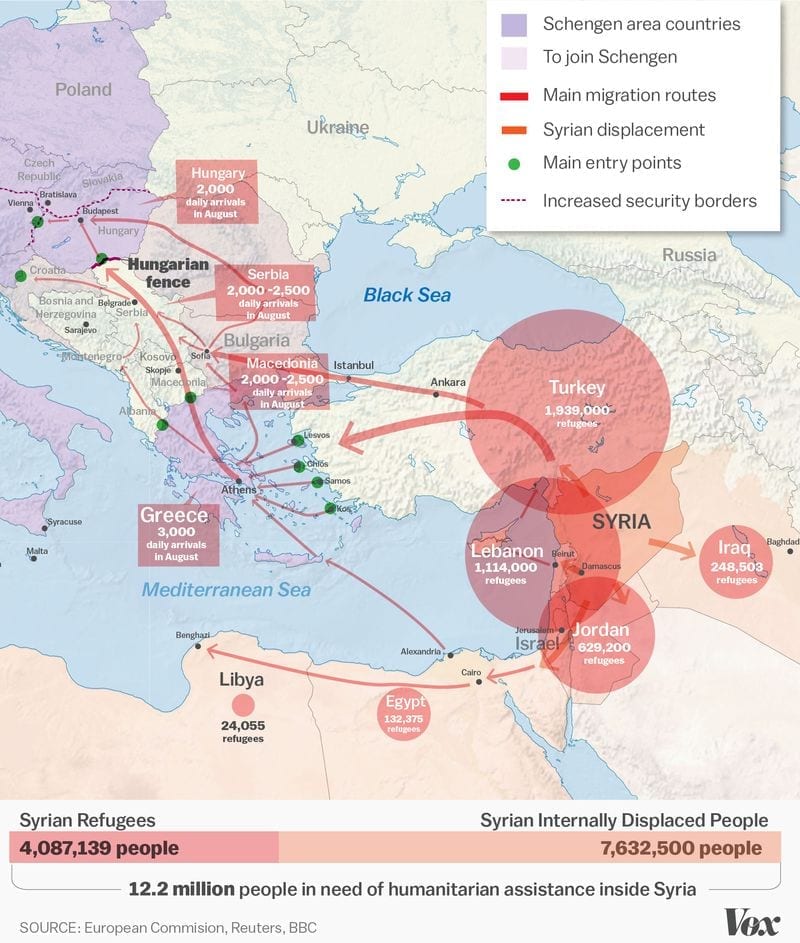
This map was retrieved via Vox 09.27.2015
Your Neighbor, the Syrian
Do you feel like you can better understand and empathize with the Syrians? I hope so! But even if you don’t feel anything, I hope on at least an intellectual level you grasp how dire this situation is.
I am always prompted by Jesus’ urgency to love our neighbor–the people God calls us to love to tangibly love God.
Jesus was asked to define what he meant by “neighbor.” In his response, now the renown story of the Good Samaritan, a man was unjustly robbed and beat-up. While he lay on the side of the road, all the “good” people passed by his bloodied body without calling 911 or lending a helping hand–the religious, the busy, the intelligent. The only person who paid him any mind was a guy who was viewed as of an inferior race and of a faulty religion. This guy cared for him, lovingly and practically.
Then after Jesus told the story, he asked his audience who the abused person’s neighbor was. Without wanting to, the audience had to conclude that it was “the one who showed him mercy.”
We might not consider the Syrians our neighbors. But I think according to Jesus’ definition of neighbor, they are, determined by the simple fact we know of their brokenness.
They are the ones in need of mercy and we are the ones who are attempting to love.
So I will reiterate Jesus’s words to you, “Go and do the same,” show them mercy and in doing so, become like the Good Samaritan.
How Do We Respond To the Syrian Refugee Crisis?
Okay, so now that we care, what should we do? Great question!
Wait
I don’t want to just pass you my typical quick-list of points to do. I am currently researching what are the best ways for us to respond this refugee crisis, and I hope to get this to you in a couple weeks. But, although there is value in responding right away (when you care), there is also value in making it part of who you are, as someone who continues to care. I hope that by waiting, we won’t just check a box and forget about the Syrians.
Heck, while we wait, maybe we should all write “remember” on our hands.
Consider
So in the meantime I encourage you to take the time to stop and think about everything you just learned and and begin to ask how you should respond. If you pray, pray hard (this might help). Ask God to guide you in a response and/or ask Him to forgive you for indifference (you and me both!).
Give
If you are itching to act now, I do highly recommend the simple thing–give your money to help refugees. Not only did I write this post at the request of World Help, one of many wonderful organizations urging people to pay attention, but I also really like what they are doing about it. They have a three-fold strategy to “rescue, restore, and rebuild” in the Middle East.
Learn Here and Give Here.
Do you have any ideas on how to help Syrian Refugees or other organizations you know of that are doing things? If so, please let me know in the comments!



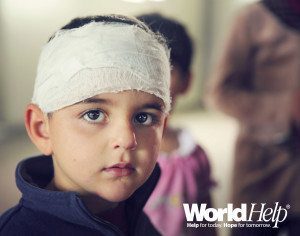
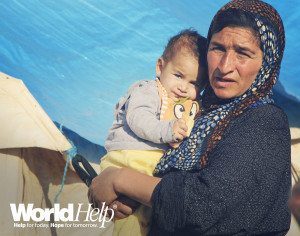
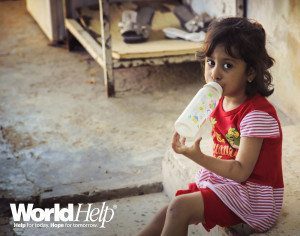
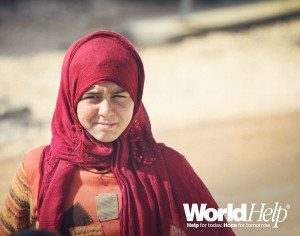







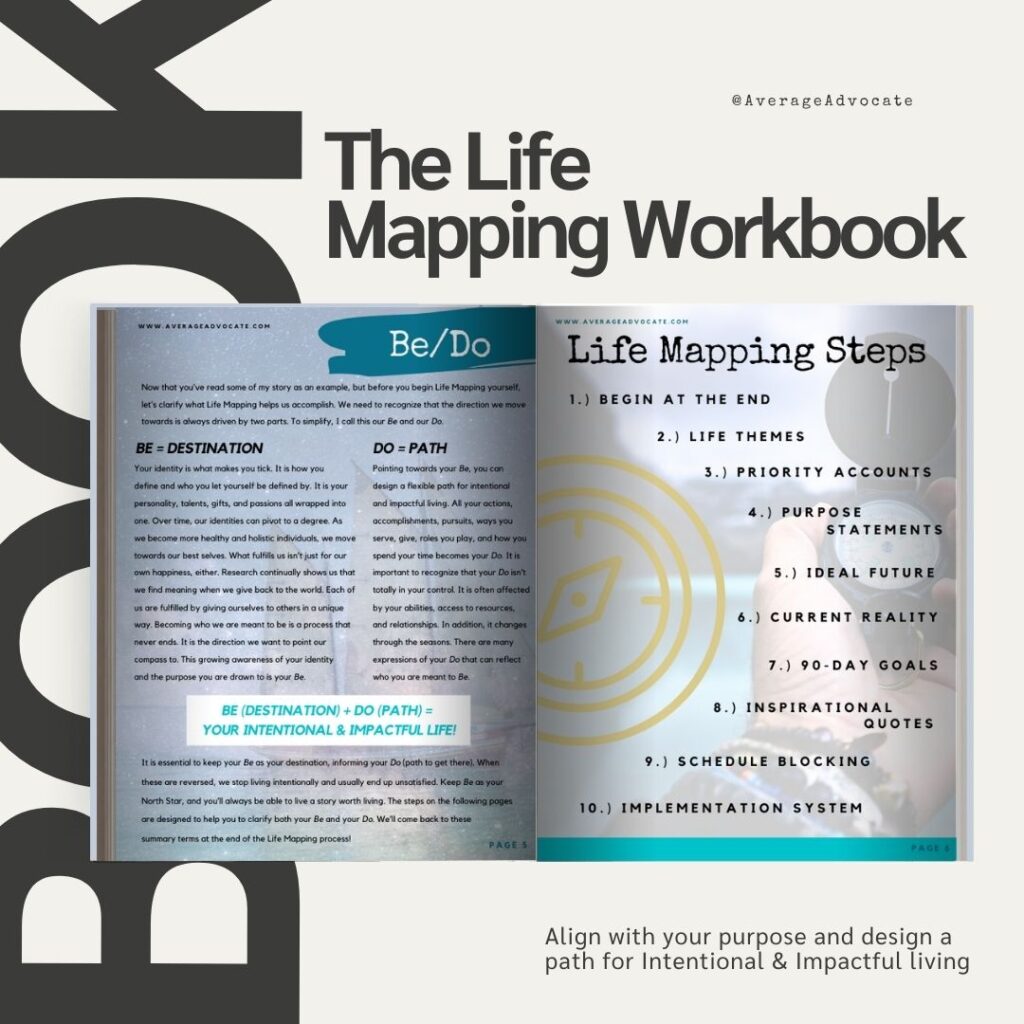


Trackbacks/Pingbacks